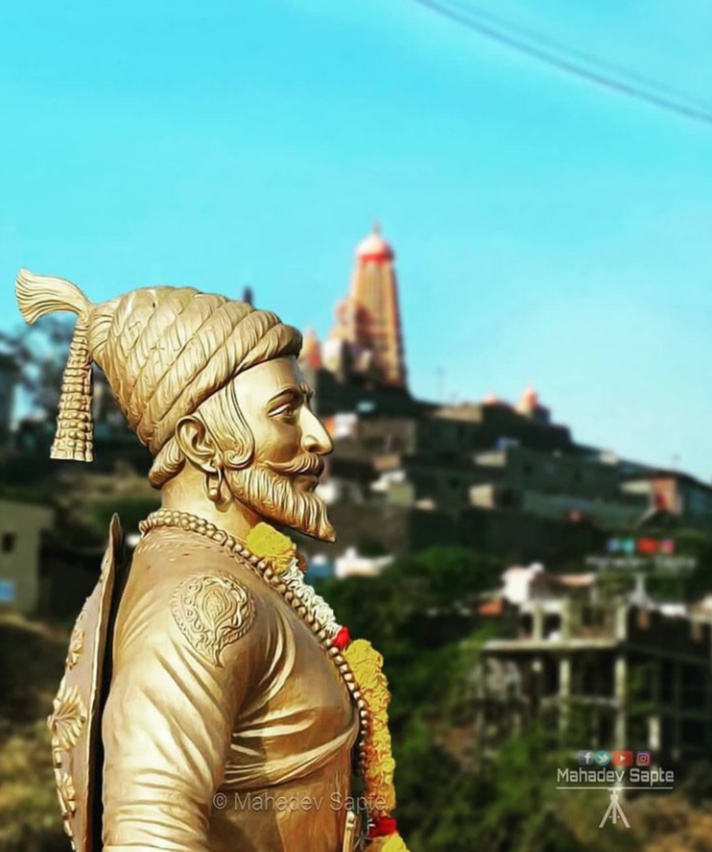Chhatrapati Shivaji Saharaj Speech for 19 February 2021 Shivaji Maharaj is the founder of Maratha dynasty [1] and a warrior king of ...
Chhatrapati Shivaji Saharaj Speech for 19 February 2021
Shivaji Maharaj is the founder of Maratha dynasty[1] and a warrior king of Maharashtra. He is known as Chhatrapati Shivaji Maharaj. Chhatrapati Shivaji Maharaj was born in the Shivneri Fort in Maharashtra on 19 February 1630 to
mother Jijabai and father Shahaji Rage bhosale. It is said that mother Jijabai to goddess Shivai on Shivneri Fort for a brave son and kept her son name as Shivaji.
At 15 years, he conquered the Torna Fort. The Chakan fort and the Kondana Fort were taken by bribing the Adil Shahi governor. Afzal Khan tried to attempt treachery with Raje Shivaji, Shivaji killed him with Tiger claws. He became the biggest enemy of Mughal Emperor Aurangzeb. He was arrested in Agra Fort by Aurangzeb, but he escaped by using great wits. In 1674 he was coronated.
In late March 1680, Shivaji Raje fell ill with fever and dysentery disease, dying around 3–5 April 1680 at the age of 52, on the eve of Hanuman Jayanti. Rumors followed his death, with Muslims believing he had died because of a curse from Jan Muhammad of Jalna. Some also believe that his second wife, Soyarabai, poisoned him so that his crown might pass to her 10-year-old son Rajaram.
After Shivaji's Raje death, the widowed Soyarabai made plans with various ministers of the administration to crown her son Rajaram rather than her prodigal stepson Sambhaji. On 21 April 1680, ten-year-old Rajaram was installed on the throne. However, Sambhaji Raje took possession of the Raigad Fort after killing the commander. On 18 June, he acquired control of Raigad, and formally ascended the throne on 20 July.
- In the Battle of Pratapgarh in 1659, Shivaji’s forces vanquished the Bijapur Sultanate’s army. From this victory, he acquired a large number of weapons and horses which greatly added to his growing Maratha army’s strength.
- In the same year, another battle was fought with the Adilshahi camp at Kolhapur where Shivaji’s outnumbered army defeated the enemy force. Shivaji displayed great military prowess during this battle. This victory now alarmed Aurangzeb.
- Shivaji raided Mughal territory near Ahmednagar and in Junnar. Aurangzeb’s forces under Nasiri Khan did defeat Shivaji at Ahmednagar in 1657 but the Mughal prince soon became engaged with his own battles with his brothers for the possession of the Mughal throne upon his father’s illness.
- Shivaji defeated a large force of Shaista Khan (Aurangzeb’s maternal uncle) and the Bijapur army in Pune. In 1664, the wealthy Mughal trading port of Surat was sacked by Shivaji.
- In June 1665, the Treaty of Purandar was signed between Shivaji and Raja Jai Singh I (representing Aurangzeb). Shivaji signed this agreement realising that a war with the Mughals would cost him men and money. As per this treaty, many forts were relinquished to the Mughals and it was agreed that Shivaji would meet Aurangzeb at Agra. Shivaji also agreed to send his son Sambhaji as well.
- At Agra in 1666, when Shivaji went to meet the Mughal emperor, the Maratha warrior felt he was insulted by Aurangzeb and stormed out of the court. He was arrested and kept prisoner. The clever escape of Shivaji and his son from imprisonment in disguise out of Agra is legendary today.
- After that there was peace between the Marathas and the Mughals until 1670. After that, the jagir of Berar which was granted to Sambhaji by the Mughals was taken back from him. Shivaji in response attacked and recovered many territories from the Mughals in a short span of four months.
- In October 1670, he also harassed the English forces at Bombay for their support of the Mughals.
- Through his military tactics, Shivaji now acquired a large part of the land in the Deccan and western India. He was crowned as the king of the Marathas on June 6, 1674, at Raigad. He took on the title of Chhatrapati, Shakakarta, Kshatriya Kulavantas and Haindava Dharmodhhaarak.
- The Maratha Kingdom founded by Shivaji was about 4.1% of the Indian subcontinent but it grew larger over time and became the dominant Indian power in the early 18thcentury.
- Shivaji fell ill and died of ill-health on 3 April 1680 at Raigad.
- Shivaji laid the foundations of a great empire which played significant parts in modern Indian history. He established a strong army and a navy across the Konkan coast. His admiral Kanhoji Angre is called the ‘Father of Indian Navy’. Shivaji was also considered a master of the guerrilla warfare.
- Shivaji is today considered a national hero in India and especially in the state of Maharashtra.
The spirit of freedom
“Freedom is a boon, which everyone has the right to receive.”
Shivaji was a lover of freedom. He enjoyed freedom in spirit and practice. He could never tolerate suppression and oppression. His life was a mission in which he sought to give freedom to anyone and everyone through his warfare and administration.









No comments
Comment down